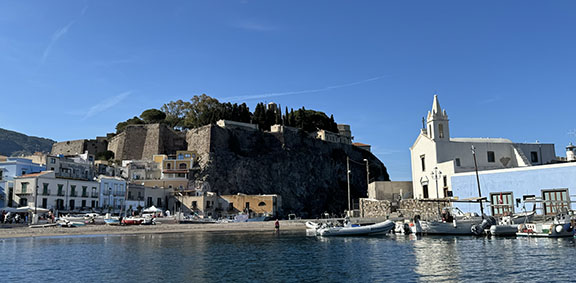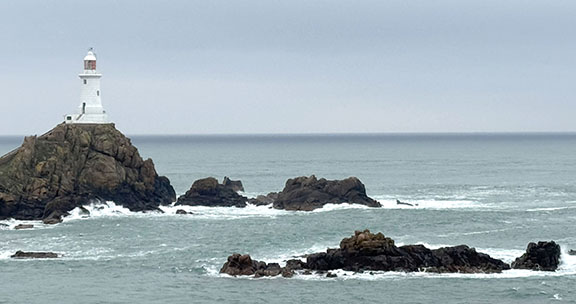[ad_1]
Highland Heritage Leader
Signs of Scotland abound in Victoria, with kilt-clad musicians by the Inner Harbour, the distinctive culinary flavours of the northern part of the United Kingdom, and whisky crafted in the fine Scottish tradition by a local distillery.
Jim Maxwell, who for the past 25 years has been the president of the Victoria Highland Games Association, plays a large role in bringing Scottish culture to life in the capital region. Now in its 162nd year, the Victoria event is the longest-running Highland Games in North America.

fixture in Victoria’s Inner Harbour and at the Royal Scot Hotel.
Photo courtesy of Charles Bailey
“It ran through both World Wars and the pandemic. We didn’t want to break our string in 2020 and 2021,” recalls Jim during a recent interview at the Victoria Scottish Community Centre, speaking over the sounds of practising bagpipers in an adjacent room.
“Back in 1864, the postmaster general of the United States came up, as did admirals and high-ranking officers. There were over 3,000 people who showed up, at a time when Victoria was a much smaller place.”
When Jim got involved in 2000, upon the suggestion of his wife, attendance had ebbed below the 3,000 of the initial Games and the festival had some financial difficulties. Nonetheless, there had always been a desire among the volunteer-led organisation to put together a first-rate event.
“We managed to gather a group of people with a good strategic plan to be the best Highland Games in Western Canada. In a couple of years, we achieved that,” Jim says, crediting the large base of experienced volunteers he has around him—many of whom have been connected to the festival longer than he has.
Today, largely due to Jim’s efforts and those of the adept team he has assembled, the festival is flourishing, with more than 20,000 people from areas near and far showing up at the annual event held during the May long weekend at Victoria’s Topaz Park. Though the city boasts a large contingent of individuals with Scottish heritage, attendees come from all backgrounds.
“We started developing various components to be world-class, and we went for the heavy sporting events. We will never have the most pipe bands, like some other cities,” he says.
When Jim employs the word “heavy,” he is not exaggerating, as each of these sporting events requires the participants to possess an enormous level of strength. Competitions include tossing the caber, a section of a tree that tapers from one end to another; putting the stone, a precursor to the modern shot put, with stones weighing up to 28 lbs; and throwing 56-lb weights for height and for distance.
Before the Games commence, there is a tour of local drinking establishments known as the Tilted Kilt Pub Crawl, and the annual Victoria Tartan Parade—open to all who have a tartan to don.
Over the course of the Games weekend, there are Celtic music performances, Highland dance competitions and, of course, pipes—with up to 500 players in a mass performance viewed by thousands of spectators.
Additionally, various clans, such as Clan Gregor, Clan MacKenzie and Clan MacRae, have tents set up throughout the spring festival.
Jim explains that planning for such a large-scale operation begins well over a year ahead of time. He is presently arranging the logistics for the 2026 and 2027 Games. In fact, 2026 will be a big year for the Victoria Highland Games.
“We have just confirmed that we will hold the world women’s heavy event for the first time in Canada and we are really looking forward to that,” Jim says.

Games Association, has led the charge since 2000 to reinvigorate
Victoria’s Scottish heritage with the help of many Scottish enthusiasts. Photo: Sam Margolis
Jim, who worked as the executive director of operations at the British Columbia Forestry Service—a position he asserts helped tremendously with the organisational skills needed to run a top-notch festival—exudes a passion for the Games, pride in what it brings to local Scottish culture, and gratitude towards his spouse.
“It is a lifestyle for my wife and me. I have a great partner and she is always there. She is as big an asset for the Highland Games as anyone,” he says.
Clearly, his devotion and enthusiasm for what he does rubs off on others.
“I find when people talk to me they are so excited to be at the Games because there is always something interesting going on. Our goal is to build a strong community- and family-oriented event,” he says.
Jim was instrumental as well in securing the location for the Victoria Scottish Cultural Centre, from which the Highland Games is headquartered and does its planning throughout the year. The centre is situated on land once used by the Hudson’s Bay Company as a farm.
In 2014, the association leased the property from the province. For the next seven years, it went through all the provincial and municipal approval requirements to build the centre, which Jim officially opened on January 19, 2023.
Jim’s experience has crossed over to the performing side, too. For 20 years, he played in a police pipe band, despite taking up the instrument as an adult.
“We had a lot of fun travelling around the world and marching in a pipe band,” he reflects.
Presently, Jim is also keeping an eye on the long-term future of the Games so that they can thrive for at least another 162 years.
“We have now started the Capital City Pipe Band for all aspiring pipers and drummers ages 8 to 18, and we have 21 members competing at the Games. So it is a huge success and we want to keep it going,” he says.
Furthermore, dozens of local athletes train year-round through the Highland Games Association.
Of perhaps greatest significance, Jim has secured a solid succession plan for the Games and a strong financial footing through its business model—the envy of many a cultural festival—as it heads into the future.
Gregarious Bagpiper
Meanwhile in downtown Victoria, Charles Bailey regales locals and tourists alike with his proficiency in the Caledonian instrument. The affable native Albertan talks to all who come by and is able to do so in a variety of languages besides English—French, German, Yiddish, Hebrew and a smattering of Arabic, among them.
As someone who had been playing piano from an early age, picking up the bagpipes came relatively quickly to Charles, despite having started when he was in his 50s.
The instrument does, however, run in the family. Bailey’s father, part of the Calgary Highlanders regiment, was one of a select few Canadian pipers during the Second World War who were there with the troops as a means to boost morale. The regiment played a significant role in liberating the Netherlands from 1944 to 1945.
“When I started playing bagpipes, my dad was in his 80s. He gave me some tips and I got inspired,” Charles recounts. “I learned from a guy who my dad had known from the Calgary Highlanders while we were in Calgary. He was the existing pipe major for the Highlanders.”
Charles studied the instrument while in Alberta, during a career spent in finance and as a real estate appraiser, before moving to the West Coast. For the past several years, he has been a regular presence outside the Royal Scot Hotel & Suites and at the Inner Harbour, across from the Fairmont Empress.
Interestingly, the City of Victoria has a whole section of its bylaws dedicated to bagpipes at a corner of the Inner Harbour, in the area known commonly as the Upper Causeway. The city has ruled that a piper can perform there Monday to Friday between 11:00 a.m. and 1:00 p.m. and 5:00 p.m. and 10:00 p.m., or between the hours of 10:00 a.m. and 10:00 p.m. Saturday, Sunday and statutory holidays.
“I play pretty much each day for five months of the year at the Royal Scot, from May to September. I play for a few hours by the Inner Harbour each week throughout the year. I was the first guy to do it there in the winter,” Charles says.
Charles, who entertains each group that comes into the hotel for about an hour, has developed a loyal following over the years.
“The bus drivers are all my friends. They were all excited there was going to be a regular piper at the Royal Scot, as was the hotel,” Charles says.
His repertoire extends beyond the regular bagpipe standards. As different groups come in from various parts of the world, he tailors his tunes to them. For example, if a busload of tourists from Quebec arrives in Victoria, he plays “Vive la Canadienne,” the anthem for French-speaking Canadians before “O Canada.”
When he notices visitors from Germany coming to town, he will play Elvis Presley’s “Wooden Heart,” which was based on the German folk song “Muss i denn.” “I meet the whole world there and I really enjoy it,” says Charles, whose music is heard by thousands of people each year.
29 views
[ad_2]
Source link





